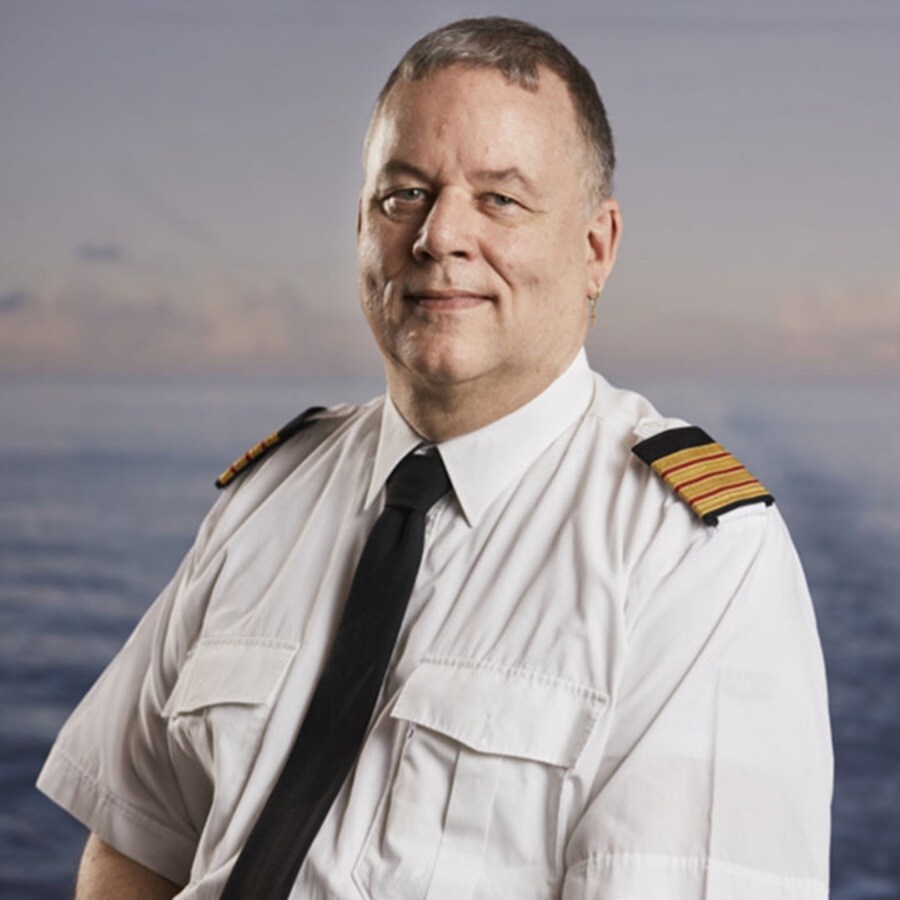Hans Dümmer is a Chief Engineer from the Netherlands who began sailing as a Cadet in 1985.

What are some of the more interesting challenges of sailing our new methanol-enabled vessels?
Working with the methanol is very new, and as the flashpoint is very low, it’s very important to learn how to deal with it, safely. We even took some lessons from Formula 1 racing, because when the fuel is on fire, it’s actually invisible in the daytime, and you can only see a very vague blue flame in the dark. So, we use heat detection and thermal cameras to recognize any fires from the temperature, rather than the visible flames. It is great to see all the innovation and focus on safety as well as the fuel itself.
Now that the training is done, what is the first thing you are looking forward to?
Actually, I need to see my wife and family first. I am typically at sea for about three months, which I love, but I certainly miss my family while away.
It is much easier to stay connected now after we have got Starlink on board - Maersk’s connected vessel provider - and it is up and running. It is great to be able to talk on WhatsApp with the family, and you feel much closer with your loved ones than before, where you had to rely on port calls to connect.
What do you think will be the most challenging part of the first voyage?
I think making sure everything is running as it should. The first voyage of any new vessel always has some ‘childhood diseases,’ and as this is also completely new technology, we try to prepare for the expected as well as the unexpected.
There are always questions a new vessel will ask you, let alone an entirely new engine setup and fuel – and you must respect and answer these questions. We’ve taken learnings from the Laura Maersk as well as from the Ane Maersk and Astrid Maersk, so we are prepared for what may come.
Can you give an example of these ‘questions?’
Bunkering is a good one, as there was no playbook for this before and many ports are working on the paperwork part – regulations and permits. The methanol rules were being written while the game was in play so to speak. So, we have to be extra careful with the bunkering as safe bunkering is absolutely a ‘must have’.
As a Chief Engineer, what is most important for bringing together your new crew on a new vessel?
For me a big focus is making sure people are comfortable speaking up, because we know there will be surprises and challenges along the way. We need to implement this for every single crew regardless of gender or where they come from. But, it is a new skill and outside the comfort for some - not everybody is comfortable speaking up and for instance challenging the officers, but it’s important that they do so.
The first in our series of interviews with some of the crew onboard our newest methanol-enabled 16,000 TEU vessel
A Captain’s view: running our new methanol-capable vessels
A Chief Officer’s view: behind the scenes on our new methanol-capable vessels
A 2nd Engineer’s view: working on our new methanol-capable vessels
All the way
Learn more about our new fleet and our ambition to achieve net zero by 2040, in line with our Science Based Target initiative’s validated targets – the first in the shipping industry. Discover the innovation, strategy and partnerships that resulted in this major landmark to decarbonising ocean container transportation.
无论您需要什么,我们都可以随时为您提供帮助
I agree to receive logistics related news and marketing updates by email, phone, messaging services (e.g. WhatsApp) and other digital platforms, including but not limited to social media (e.g., LinkedIn) from A. P. Moller-Maersk and its affiliated companies (see latest company overview). I understand that I can opt out of such Maersk communications at any time by clicking the unsubscribe link. To see how we use your personal data, please read our Privacy Notification.
By completing this form, you confirm that you agree to the use of your personal data by Maersk as described in our Privacy Notification.
